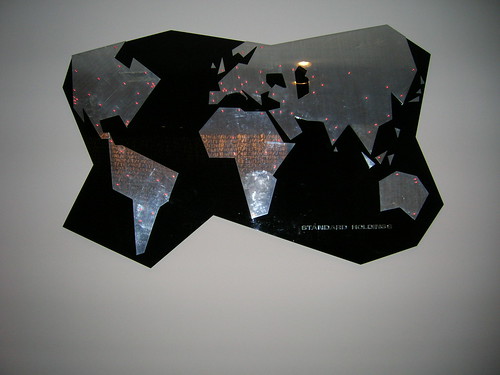WSJ last week had a good piece about computer-supported work over distance at Accenture.
"Anyone who says managing this way is easy is lying," says Adrian Lajtha, head of Accenture's financial-services group. (...) With many of them on the road much of the time, partners decided they should live where they wanted and meet regularly. (...) Technology helps keep a virtual company on track. Every day, Accenture employees log on to the company's internal Web site to record where they are working. (...) shares documents and financial data with other executives through Accenture's internal Web site. And when he wants to see, as well as hear, other executives, he conducts a videoconference. (...) To compensate for restricted face time, he talks daily by phone with many of his direct reports. Every other Friday, he confers by phone with the heads of Accenture's five operating groups to review projects and decide where consultants are most needed. (...) A "magic hour" for global phone conferences is 1 p.m. London time, says Mr. Lajtha, who lives in London but travels 85% of the time. That's midnight in Australia, 9 p.m. in Beijing, and 5 a.m. in California. "It isn't too grim" for anyone, he notes. (...) He sometimes alters his own schedule to be in better sync with his managers around the world. An "early bird" who likes to begin his workday by 7 a.m. (...) some problems require "being there in person," he says. When he learned that a project team in the U.S. felt bogged down, he made an unexpected visit to their work site and held a three-hour meeting. (...) "When times are tough, you have to go into communication overload so people have faith they can come through," he says. For virtual executives, that means more travel and more odd-hour conferences.
So what can we learn: - use of mix old (telephone) and not so old (web portal, cell phone) technologies - time is always an issue, fortunately, they have the "magic hour" - face 2 face meetings still matter, especially if there's a big problem
Besides, one of the curious reason they have this "virtual company" model is "Accenture's partners couldn't agree on a headquarters location for the new company". Why do I blog this? What is explained is very well known to the CSCW community but it's interesting to read what business people say about it, what are their concerns.

 "eurovisiopsephology": this name rocks!
Why do I blog this? it's interesting to see how such research gives insights about memetic epidemic.
"eurovisiopsephology": this name rocks!
Why do I blog this? it's interesting to see how such research gives insights about memetic epidemic.




 Why do I blog this? I like this idea of roof farms; besides my parents' house is made of a vegetal-roof (no tiles), maybe that's why this idea is not so weird for me.
Why do I blog this? I like this idea of roof farms; besides my parents' house is made of a vegetal-roof (no tiles), maybe that's why this idea is not so weird for me.

 Well I'm kind of speechless
Well I'm kind of speechless